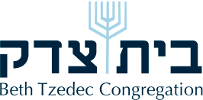As a Bar and Bat Mitzvah tutor, I often find myself shepping nachas and living vicariously through the parents of the students I teach. People who have visited my office surely know about my extensive kippah collection that I have amassed from all the simchas over the years. For this significant milestone in a child’s Jewish life, I think that many B’nei Mitzvah teachers get a real sense of satisfaction when mentoring a pupil in successfully learning how to chant Torah and Haftarah. This week’s Torah portion shares a valuable homiletical lesson that echoes the vicarious enjoyment a teacher feels.
The events on Mount Sinai, as outlined at the beginning of chapter 3 of Parashat Bamidbar, deal with the designation of the Levites as the guards and porters of the tabernacle. God commands Moses to bring the Levites before Aaron and formally designate them as servants of the Kohanim and representatives of the nation in safeguarding the Sanctuary and assisting in its service. Before the Torah counts the members of the tribe of Levi, the priestly genealogy identifies Aaron’s sons under whom the Levites will serve. However, when listing Aaron’s children by name, the Torah includes a peculiar addition: “These are the offspring of Aaron and Moses on the day that God spoke with Moses on Mount Sinai. These are the names of Aaron’s sons: Nadab, the first-born, and Abihu, Eleazar and Ithamar. These were the names of Aaron’s sons, the anointed priests who were ordained for priesthood” (Numbers 3:1-3).
An obvious question arises. Why does the above passage name only the sons of Aaron but call them the offspring of Aaron and Moses? Furthermore, what does God speaking to Moses at Mount Sinai have to do with Moses' relationship to his nephews? In tractate Sanhedrin 19b, the Talmud infers that one who teaches Torah to someone else’s children is regarded as if he/she had given birth to them. Thus, it is understandable that the Torah considers the children of Aaron as Moses’ offspring “on the day that God spoke to Moses on Mount Sinai.” Because he taught the Torah to Aaron’s four sons, Moses became their spiritual father, just as Aaron was their biological father. According to some commentators, Moses became their father on Mount Sinai because God was so angered by Aaron’s participation in the sin of the golden calf that God was ready to destroy the entire family, but Moses’ prayers prevented this from happening and saved Eleazar and Ithamar. The moral implication of this lesson is that a person’s horizon is never limited to his / her immediate family or personal circle; The example and guidance of a mentor can be just as impactful.
Moses is identified as a forebearer of Aaron’s children in a specific context: when he had to show supernatural love for them, when teaching them Torah. Parashat Bamidbar reiterates this message to the teacher of Torah. It is impossible to mold students and teach them unless you love them and treat them as if they were your children. This is something I keep in mind as a B’nei Mitzvah tutor, and it applies to any kind of teacher who finds teaching a rewarding experience. Shabbat Shalom.





